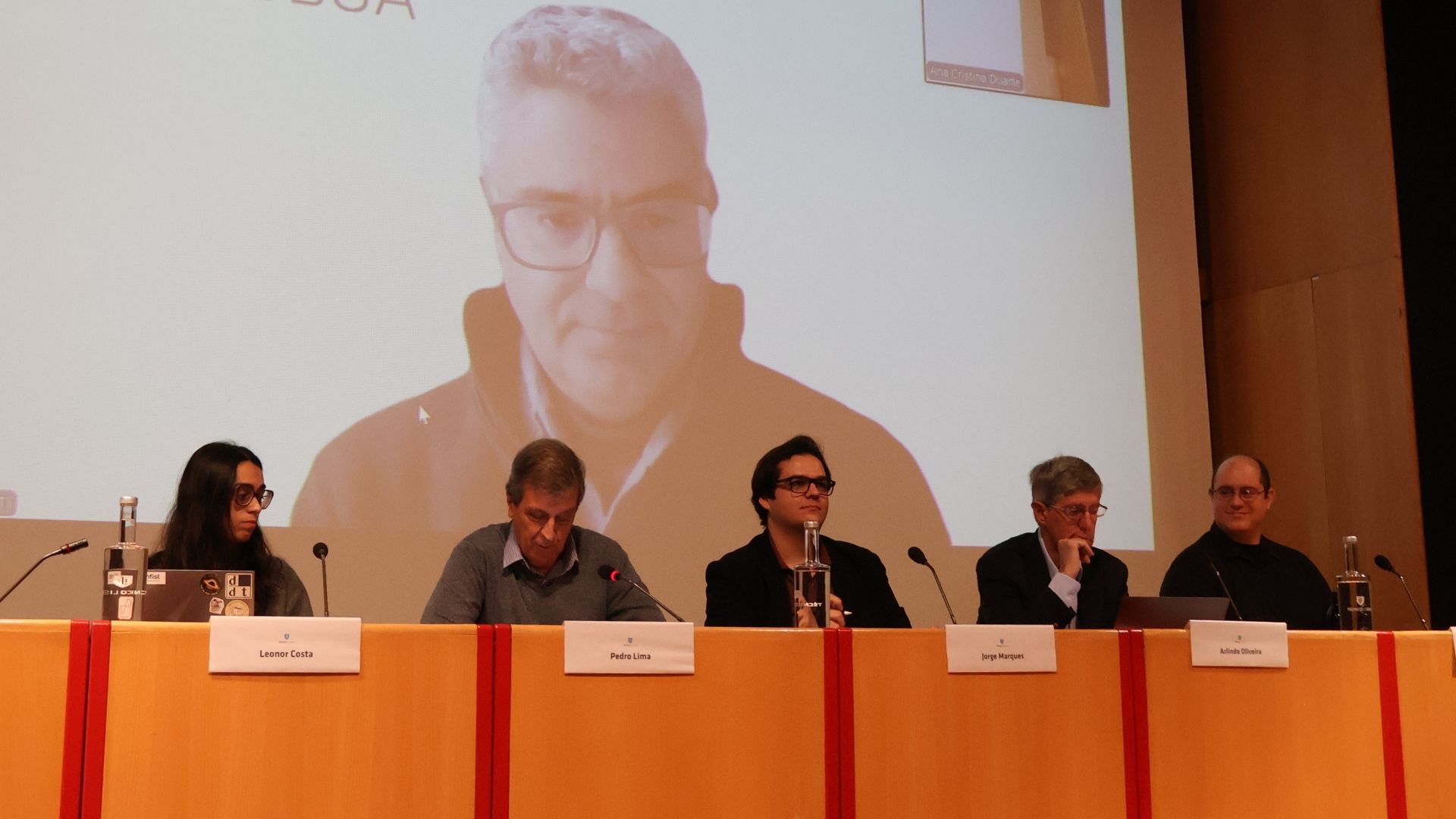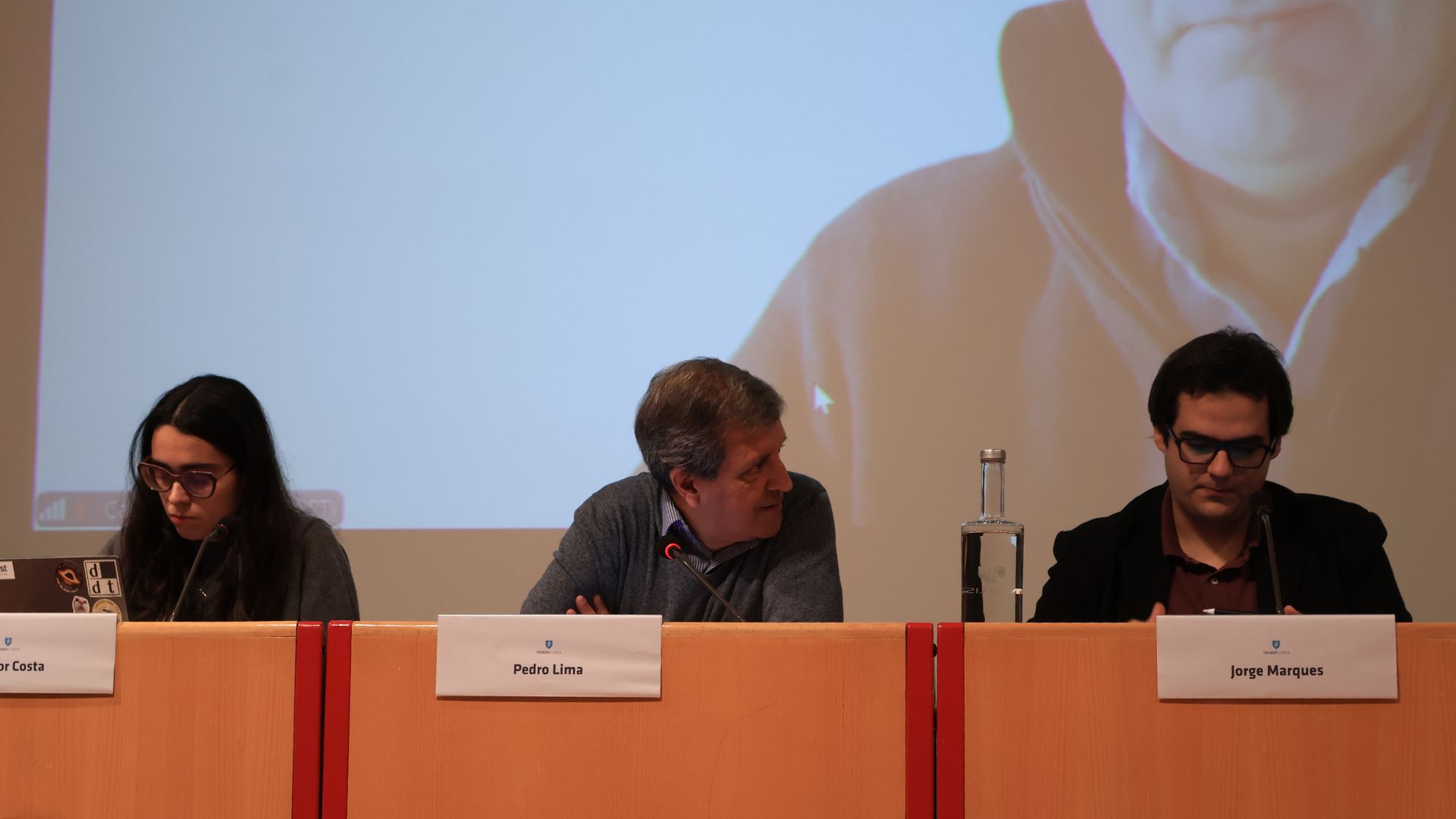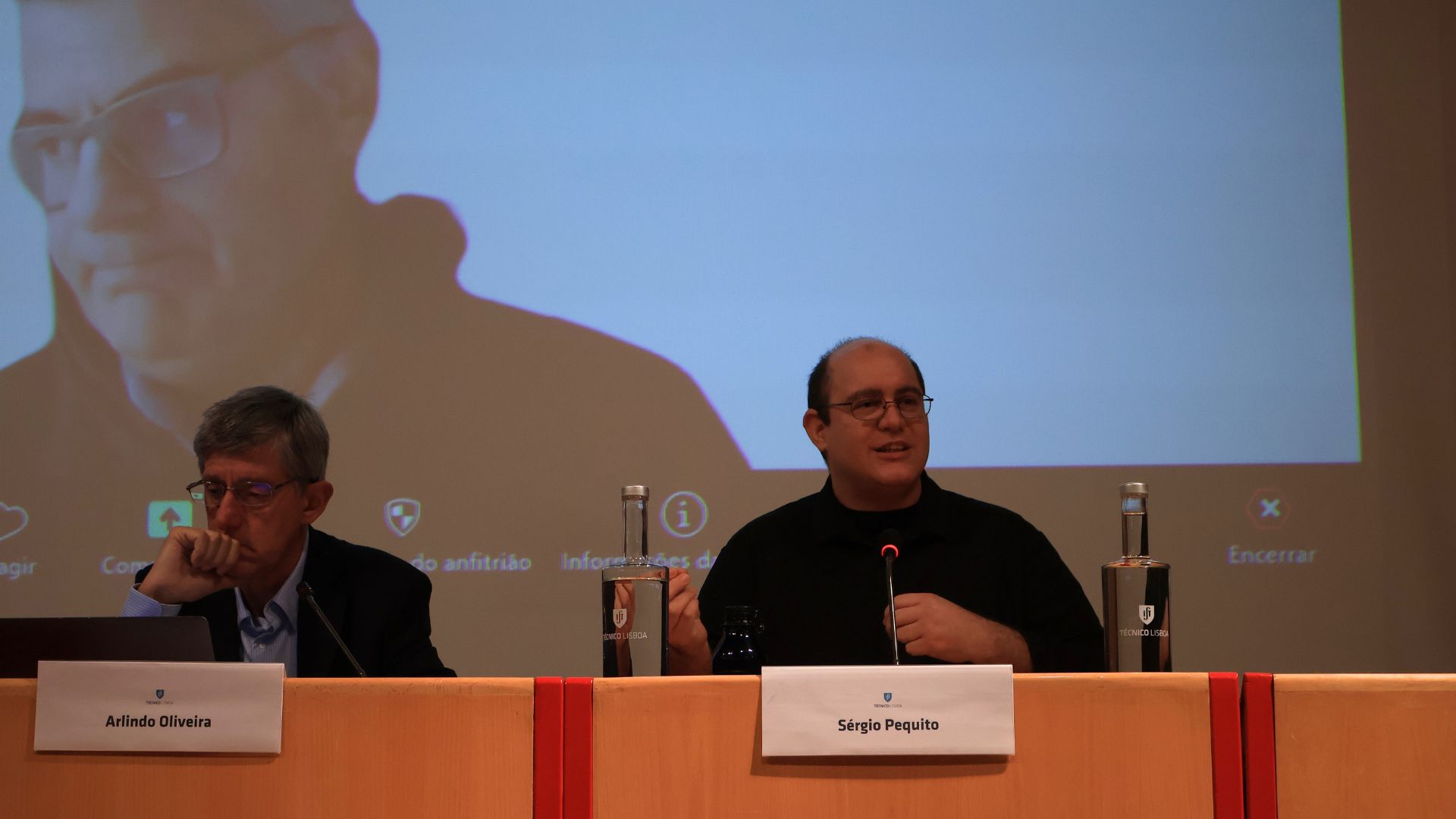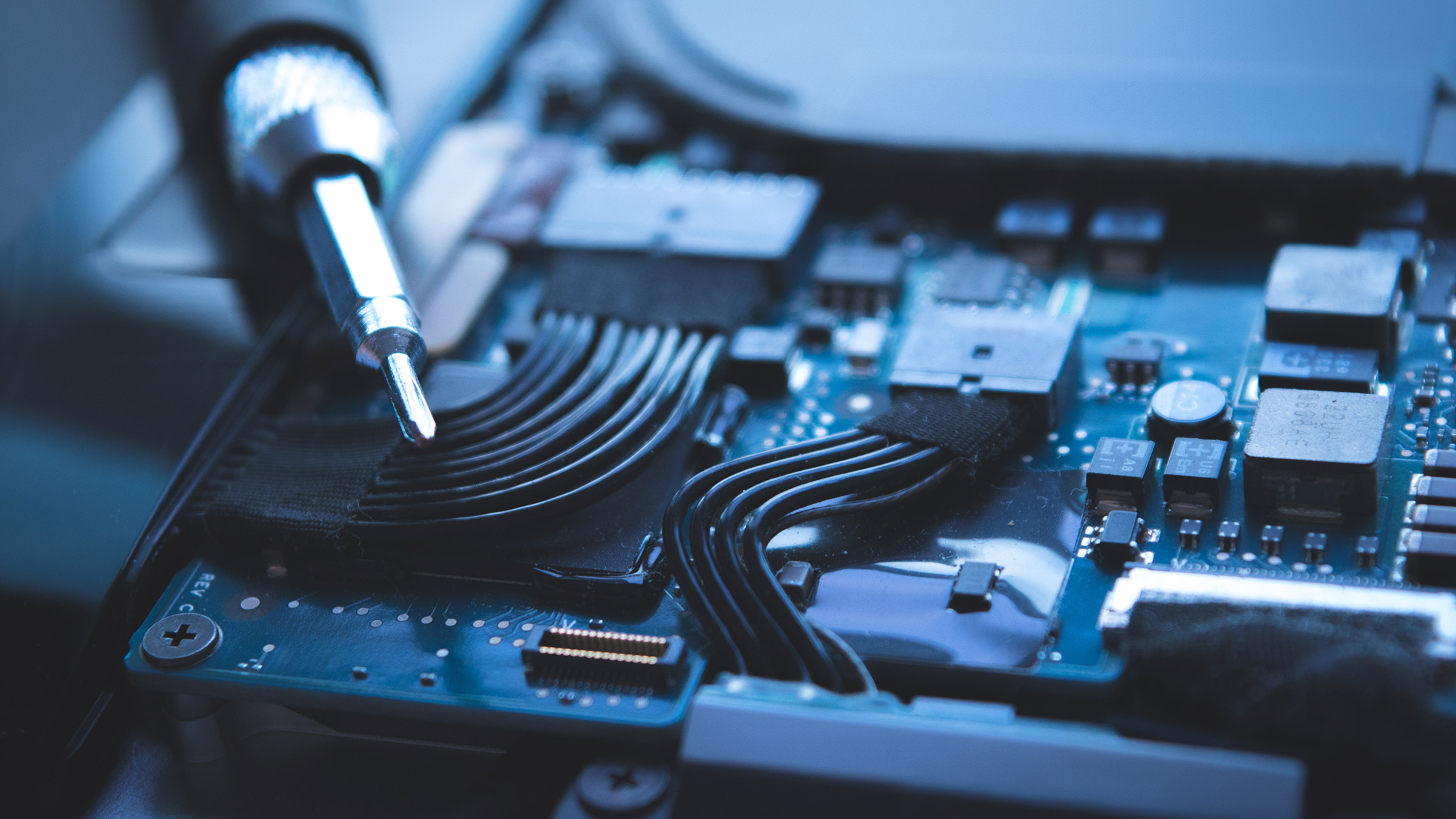Técnico Seminar Series 2025: Artificial Intelligence in Research and Education

On the 18th, several panels focused on the theme “The Future at Técnico” took place as part of the Técnico 2025 Sessions. The first morning session, “Artificial Intelligence in Research and Teaching”, featured Sérgio Pequito, Vice President for Research, Development and External Relations of the Department of Electrical and Computer Engineering and researcher at the Institute for Systems and Robotics (ISR); Jorge Marques, undergraduate student in Electrical and Computer Engineering (LEEC) and member of the Executive Committee of the Pedagogical Council; and Professors Arlindo Oliveira and Carlos Santos Silva. The debate was moderated by Pedro Lima, faculty member of DEEC and researcher at ISR.
The session began with a presentation by Carlos Santos Silva, who introduced the forthcoming “Guide to the Use of Artificial Intelligence at Técnico”. The goal of this guide is to address the main questions raised by members of the academic community about the applications of AI in teaching and research, including the level of use permitted by instructors in each course. The document will be periodically revised to remain up-to-date over time.

Next, Pedro Lima opened the discussion by asking the speakers about the impact of artificial intelligence on teaching. Jorge Marques responded by highlighting the growing need to adapt to an emerging reality. “There is always strong resistance to change (…) and education will be no exception,” he said, emphasizing the importance of students’ critical thinking. He also noted the role of instructors in adapting teaching practices to new technologies.
Sérgio Pequito offered a “more optimistic” perspective, distinguishing applications in higher education from those at other academic levels. “I think these tools will be an asset for teachers,” he said, stressing the possibility for instructors to act as “curators of the knowledge” they wish students to learn, using AI according to their needs. He pointed out that AI can contribute positively to formative assessment by addressing existing gaps and improving the quality of teaching. As an example, he mentioned using AI to generate incorrect answers to stimulate discussion: “It forces students to collaborate and develop critical thinking.” He also acknowledged the technology’s potential to democratize education by increasing accessibility for students from different socioeconomic backgrounds.
After the topic of teaching, Pedro Lima moved the discussion to research. Jorge Marques highlighted similarities with the educational context, noting the “ease with which we can structure ideas, produce summaries”, and the optimization of data processing—while also pointing out the risk of system errors. In his view, these tools accelerate technological development but do not replace the role of human beings.

The Vice President for Research, Development and External Relations emphasized the value of using AI for reviewing scientific papers, enabling reflection on their shortcomings. He also noted the advantage of using such tools to formulate key questions for projects, once again stressing democratization: there is a disparity between countries such as Portugal and the United States in terms of available human and financial resources—something these systems may help to mitigate.
The researcher also stressed the importance not only of how knowledge is sought but also how it is assimilated, suggesting that this should be an area for future reflection.
The session closed with questions from the audience, raising topics such as the application of AI in fields like chemistry and the need to develop solutions that connect the physical and digital worlds across different academic areas. The conversation ended with a discussion on ethical challenges, particularly in academic work, the distinction between fraud and the failure to meet learning outcomes, and the need to clarify for students the contexts in which different tools may be used.
